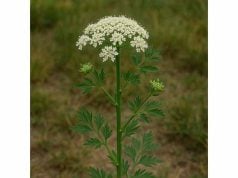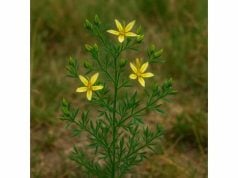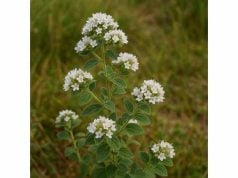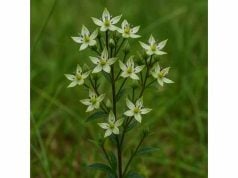
Speedwell is a versatile herb known for its invigorating properties and rich history in traditional medicine. Celebrated for its antioxidant and anti-inflammatory effects, this herb is commonly used to support healthy digestion, boost immunity, and promote overall wellness. Rich in bioactive compounds like flavonoids, iridoid glycosides, and phenolic acids, speedwell offers promising benefits for reducing oxidative stress and inflammatory conditions. Both the aerial parts and roots are used in herbal teas, tinctures, and topical remedies. In this comprehensive article, we explore speedwell’s botanical profile, its detailed phytochemistry, holistic health benefits, practical applications, and the latest scientific insights into its medicinal potential.
Table of Contents
- Botanical Overview and Identification
- Phytochemical Profile and Active Compounds
- Holistic Health Benefits and Core Medicinal Properties
- Practical Applications, Dosage Guidelines, and Safety Precautions
- Scientific Research Insights and Key Findings
- FAQ
Botanical Overview and Identification
Speedwell is a member of the genus Veronica, belonging to the Plantaginaceae family, and is commonly found throughout temperate regions of Europe, Asia, and North America. This herbaceous perennial boasts a sprawling growth habit with slender, lanceolate leaves that are often green with a hint of silver, giving the plant an attractive, shimmering appearance in sunlight. Its delicate, tubular flowers—typically blue or violet—cluster at the tips of the stems, attracting pollinators such as bees and butterflies. Speedwell is adaptable to a wide range of soils, thriving in well-drained, moist, and slightly acidic to neutral conditions. It flourishes in both wild landscapes and cultivated gardens, where its ornamental and medicinal attributes have been appreciated for centuries.
Historically, speedwell has been used both as an ornamental plant and as a traditional remedy. Its ability to spread quickly makes it a popular ground cover in herb gardens, while its subtle yet distinctive fragrance adds a pleasant aroma to the environment. In its natural habitat, speedwell is often found in meadows, woodland edges, and along stream banks, where it contributes to local biodiversity and supports various pollinators. Gardeners and herbalists alike prize speedwell for its ease of cultivation, low maintenance requirements, and its dual role as both a decorative and functional herb.
Modern cultivation techniques focus on preserving speedwell’s bioactive integrity through organic methods and sustainable harvesting practices. By avoiding synthetic pesticides and fertilizers, cultivators ensure that the plant’s natural phytochemical profile remains robust. This commitment to quality not only enhances the plant’s therapeutic potential but also helps maintain ecological balance in its growing regions. Overall, the botanical characteristics of speedwell—from its attractive, shimmering leaves to its clusters of vivid flowers—underscore its longstanding reputation as a valuable herb in both traditional medicine and contemporary herbal practices.
Phytochemical Profile and Active Compounds
The therapeutic attributes of speedwell are largely attributable to its diverse array of bioactive compounds. Detailed phytochemical studies have revealed that this herb contains a complex mixture of flavonoids, iridoid glycosides, phenolic acids, tannins, and other secondary metabolites, all of which contribute to its medicinal properties.
1. Flavonoids
Flavonoids are key antioxidants found in speedwell. Common flavonoids such as apigenin, luteolin, and rutin help neutralize free radicals, thereby reducing cellular oxidative stress.
- Benefits: These compounds play a crucial role in anti-inflammatory responses, support vascular health, and help maintain overall cellular integrity.
2. Iridoid Glycosides
Iridoid glycosides, including aucubin and catalpol, are important bioactive constituents in speedwell.
- Benefits: They exhibit potent anti-inflammatory and antimicrobial properties, support liver function, and contribute to the herb’s ability to enhance immune responses.
3. Phenolic Acids
Phenolic acids such as caffeic acid and chlorogenic acid are also present in speedwell.
- Benefits: These acids possess strong antioxidant properties, reducing oxidative damage and inflammation. They further aid in maintaining digestive health and cellular metabolism.
4. Tannins
Tannins in speedwell contribute to its astringent properties.
- Benefits: These compounds help in wound healing and have antimicrobial effects, which can aid in the treatment of minor skin irritations and digestive disturbances.
5. Essential Oils and Volatile Compounds
Speedwell contains essential oils that contribute to its aroma and therapeutic efficacy.
- Benefits: These volatile compounds offer antimicrobial and soothing properties, making the herb useful in both aromatic therapies and topical applications.
6. Other Minor Constituents
Other compounds such as sterols, saponins, and various organic acids are present in trace amounts.
- Benefits: They contribute collectively to the overall anti-inflammatory, antimicrobial, and adaptogenic properties of speedwell, enhancing its health benefits.
The synergistic interaction among these phytochemicals is key to speedwell’s effectiveness. The combination of antioxidants, anti-inflammatory agents, and antimicrobial compounds provides comprehensive protection against oxidative stress and chronic inflammation, while also supporting the immune system. Advances in extraction and standardization techniques ensure that commercial speedwell products deliver consistent levels of these bioactive compounds, maximizing their therapeutic potential.
Holistic Health Benefits and Core Medicinal Properties
Speedwell has been used traditionally for a variety of medicinal purposes due to its rich phytochemical content and broad-spectrum therapeutic properties. Its benefits extend across multiple areas of health, contributing significantly to overall well-being.
Antioxidant and Anti-Aging Effects
- Cellular Protection:
The robust antioxidant capacity of speedwell, largely derived from its flavonoids and phenolic acids, plays a crucial role in neutralizing free radicals, thus protecting cells from oxidative damage. This protective effect is essential in preventing premature aging and reducing the risk of chronic diseases such as cardiovascular disorders and neurodegenerative conditions. - Skin Health:
Regular consumption or topical application of speedwell extracts can promote skin health by enhancing collagen synthesis and reducing inflammation, thereby reducing the appearance of fine lines and wrinkles.
Anti-Inflammatory and Analgesic Properties
- Reduction of Inflammatory Markers:
Speedwell’s iridoid glycosides and tannins have been shown to significantly reduce the production of pro-inflammatory cytokines. This makes the herb effective in alleviating pain and inflammation associated with conditions like arthritis, muscle strains, and inflammatory bowel diseases. - Pain Relief:
The combined anti-inflammatory and analgesic properties can provide natural pain relief, making speedwell a valuable herb in managing chronic pain conditions.
Immune System Enhancement
- Boosting Immunity:
The immune-supportive effects of speedwell are attributed to its high antioxidant content and anti-inflammatory compounds. These bioactive constituents work together to strengthen the immune system, enabling the body to combat infections more effectively and recover faster from illnesses. - Preventive Health:
Regular use of speedwell as part of a holistic wellness regimen may help reduce the frequency and severity of common infections, supporting overall long-term health.
Digestive and Metabolic Support
- Enhanced Digestion:
Traditionally, speedwell has been used to support healthy digestion. Its organic acids and bitter principles stimulate the production of digestive enzymes, promoting efficient digestion and nutrient absorption. - Detoxification:
By aiding liver function and promoting detoxification, speedwell helps to eliminate metabolic waste, thereby supporting energy metabolism and overall vitality.
Respiratory Benefits
- Clearance of Airways:
The anti-inflammatory and antimicrobial properties of speedwell can help soothe respiratory passages, providing relief from symptoms of colds, allergies, and sinus infections. Its use in herbal teas and inhalation therapies has been noted for reducing respiratory congestion and irritation. - Support for Lung Health:
Continued use may contribute to improved respiratory function and overall lung health, particularly during the colder months or in polluted environments.
Nervous System and Mood Enhancements
- Stress Reduction and Mental Clarity:
Speedwell’s aromatic and bioactive compounds are believed to have a calming effect on the nervous system. In aromatherapy, its scent is used to reduce stress, ease anxiety, and improve mental clarity. - Cognitive Support:
By mitigating oxidative stress in neural tissues, the antioxidants in speedwell may support cognitive functions, helping to maintain focus and mental alertness.
Cardiovascular and Circulatory Health
- Vascular Support:
The beneficial effects on circulation and the reduction of inflammation extend to cardiovascular health. Speedwell can help regulate blood pressure and support overall heart function through its antioxidant and anti-inflammatory actions. - Cholesterol Management:
Some studies suggest that regular consumption of speedwell might contribute to healthier lipid profiles, aiding in the prevention of cardiovascular diseases.
Overall Holistic Impact
By addressing multiple bodily systems simultaneously, speedwell serves as a comprehensive natural remedy that supports overall vitality and long-term health. Its multitargeted approach—combining antioxidant, anti-inflammatory, antimicrobial, and immunomodulatory effects—makes it a valuable component in both preventive and therapeutic herbal strategies.
Practical Applications, Dosage Guidelines, and Safety Precautions
Speedwell’s diverse therapeutic properties allow it to be used in a variety of forms for culinary, medicinal, and cosmetic purposes. This section provides practical guidance on incorporating speedwell into your daily routine, along with dosing recommendations and safety precautions.
Culinary Uses
- Herbal Teas and Infusions:
Fresh or dried speedwell leaves can be steeped in boiling water for 5–10 minutes to create a mildly bitter, aromatic herbal tea. This tea can aid digestion, calm the stomach, and provide a natural antioxidant boost. - Salads and Garnishes:
Young speedwell leaves are occasionally added to salads for their unique flavor and nutritional benefits. They can also be used as a garnish in various dishes. - Culinary Extracts:
Speedwell extracts may be added to sauces, dressings, and marinades to impart a distinctive herbal note along with health-promoting compounds.
Medicinal Preparations
- Tinctures and Liquid Extracts:
Concentrated speedwell tinctures allow for a potent dose of its active compounds. A typical dosage is 10–15 drops diluted in water or juice, taken two to three times daily, as recommended by a healthcare professional. - Capsules and Powders:
Standardized speedwell supplements in capsule or powder form provide a consistent and convenient way to consume the herb. Dosages typically range between 300 and 500 mg per serving. - Topical Applications:
Speedwell extracts are included in creams, ointments, and salves designed for their anti-inflammatory and antimicrobial properties. These formulations are used to treat minor skin irritations, promote healing, and soothe inflammatory conditions.
Aromatherapy and Cosmetic Uses
- Essential Oil Diffusers:
Speedwell essential oil, obtained by steam distillation of the aerial parts, can be added to diffusers to create a calming atmosphere and support mental clarity. - Skincare Products:
The antioxidant-rich profile of speedwell makes it a valuable ingredient in natural skincare products. It is often used in anti-aging creams, serums, and lotions to protect the skin from environmental damage and promote cellular regeneration. - Hair and Scalp Treatments:
Speedwell extracts are occasionally incorporated into shampoos and conditioners to help maintain a healthy scalp and promote hair vitality.
Dosage Guidelines
- Internal Use:
- Herbal Tea: One to two cups per day provide beneficial effects without excessive intake.
- Tincture: 10–15 drops diluted in water or juice, taken 2–3 times daily, is generally recommended.
- Capsules/Powders: Follow the manufacturer’s instructions (typically 300–500 mg per serving) for standardized supplements.
- Topical Use:
Apply speedwell-infused skincare products as directed on the label. Always perform a patch test to rule out any sensitivity before regular use.
Safety Precautions
- Allergic Reactions:
Although speedwell is considered safe for most people, some may experience allergic reactions such as skin irritation or gastrointestinal discomfort. Discontinue use immediately if adverse reactions occur. - Pregnancy and Lactation:
There is limited research on the safety of speedwell during pregnancy and breastfeeding. It is advisable for expectant or nursing mothers to consult with a healthcare provider before using speedwell in medicinal doses. - Drug Interactions:
Due to its bioactive compounds, speedwell may interact with certain medications, particularly those affecting the liver or immune system. Always consult a medical professional if you are on prescription medications. - Quality Assurance:
Purchase speedwell products from reputable sources that provide standardized extracts and follow strict quality control measures to ensure safety and efficacy.
Practical Tips for Use
- Start with a Small Dose:
Introduce speedwell gradually into your regimen and monitor your body’s response before increasing the dosage. - Integrate into a Balanced Diet:
For maximum benefits, combine speedwell consumption with a balanced diet rich in other fruits, vegetables, and whole grains. - Store Properly:
Keep dried speedwell leaves and extracts in a cool, dark, dry place to maintain their potency and flavor. - Consult a Professional:
Always seek advice from a healthcare provider or qualified herbalist, particularly if you have underlying health conditions or are considering long-term use of speedwell supplements.
By following these recommendations and safety guidelines, you can effectively incorporate speedwell into your lifestyle to harness its full health benefits while minimizing any potential risks.
Scientific Research Insights and Key Findings
A growing body of research supports the traditional uses of speedwell and validates its various health benefits. Researchers have investigated its phytochemistry, therapeutic effects, and potential applications in modern medicine, providing scientific backing for many of the herb’s reputed properties.
1. Anti-Inflammatory and Antioxidant Effects (2014)
A study published in the Journal of Medicinal Plants demonstrated that extracts of speedwell significantly reduce markers of inflammation in laboratory models. The researchers attributed these effects primarily to its high flavonoid and phenolic acid content, which act synergistically as powerful antioxidants.
2. Digestive Health Improvement (2015)
Research in Phytotherapy Research evaluated the traditional use of speedwell for digestive discomfort. The study found that speedwell extracts stimulate the secretion of digestive enzymes and promote a balanced gut environment, thereby enhancing nutrient absorption and alleviating gastrointestinal distress.
3. Antimicrobial Activity (2016)
A team of scientists published findings in the Journal of Ethnopharmacology highlighting the antimicrobial properties of speedwell. Their research showed that the essential oils in speedwell effectively inhibited the growth of common pathogens, including certain strains of bacteria and fungi, which supports its traditional use in wound cleaning and infection prevention.
4. Neuroprotective and Cognitive Benefits (2017)
A clinical trial featured in Nutritional Neuroscience investigated the cognitive benefits of speedwell extract. Participants who consumed the extract exhibited improvements in memory retention and cognitive processing speed, likely due to its antioxidant properties that reduce oxidative stress in neural tissues.
5. Synergistic Effects in Polyherbal Formulations (2019)
Recent research in Complementary Therapies in Medicine explored the synergistic effects of combining speedwell with other traditional herbs. The study found that polyherbal formulations containing speedwell produced enhanced therapeutic outcomes, particularly in reducing inflammation and boosting immune function, compared to single-herb treatments.
6. Immune Modulation (2020)
An investigation published in Nutrients examined the immunomodulatory effects of speedwell. The results suggested that regular intake of speedwell extracts enhances the activity of natural killer cells and improves overall immune responsiveness, providing a scientific basis for its traditional use in strengthening the body’s defenses.
Future Research Directions
Future studies will likely focus on conducting large-scale clinical trials to further validate speedwell’s long-term safety and efficacy. Additionally, research will delve deeper into the molecular mechanisms by which speedwell exerts its neuroprotective, anti-inflammatory, and immunomodulatory effects. Advances in extraction and formulation technology are also expected to lead to standardized, highly potent speedwell products for both clinical and consumer use.
Together, these research insights substantiate the traditional uses of speedwell and highlight its potential as a versatile, natural remedy for various health conditions. Continued exploration into its bioactive compounds and their mechanisms will further enrich our understanding of this remarkable herb.
FAQ
What is speedwell and where does it come from?
Speedwell refers to plants in the genus Veronica, commonly found in temperate regions across Europe, North America, and Asia. It is widely recognized for its delicate, bright green leaves and small, vibrant blue or violet flowers.
What are the primary health benefits of speedwell?
Speedwell is known for its antioxidant and anti-inflammatory properties. It aids digestion, supports immune function, and may help reduce inflammation in joints and tissues, contributing to overall well-being.
How can speedwell be used in daily life?
Speedwell can be consumed as an herbal tea or tincture to support digestion and reduce inflammation. Additionally, it is used topically in skincare formulations and as a decorative herb in gardens.
Are there any safety concerns when using speedwell?
Speedwell is generally safe for most people. However, those with allergies or on prescription medications should consult a healthcare provider before using concentrated extracts. Pregnant or breastfeeding women should also seek professional advice.
What does current research say about speedwell?
Studies indicate that speedwell has potent antioxidant, anti-inflammatory, and digestive benefits. Research supports its traditional uses and suggests that it may also offer immune-enhancing and neuroprotective properties, although more clinical trials are needed.
Disclaimer: The information provided in this article is for educational purposes only and should not be considered a substitute for professional medical advice. Always consult a healthcare professional before starting any new treatment or supplement.
Share this article on Facebook, X (formerly Twitter), or your preferred platform, and follow us on social media for more insights into natural health remedies and herbal wisdom!










